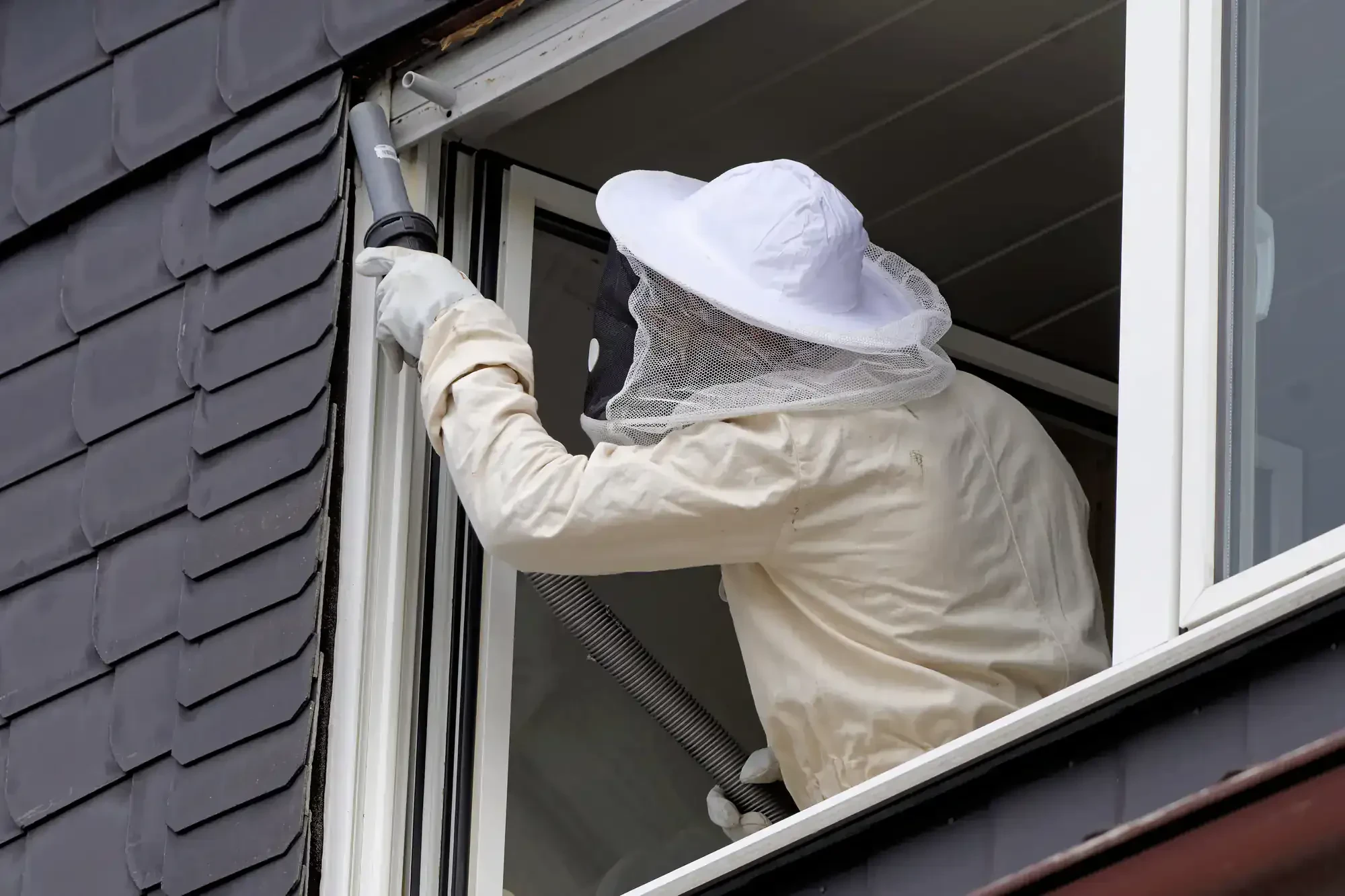
Hear from Our Customers
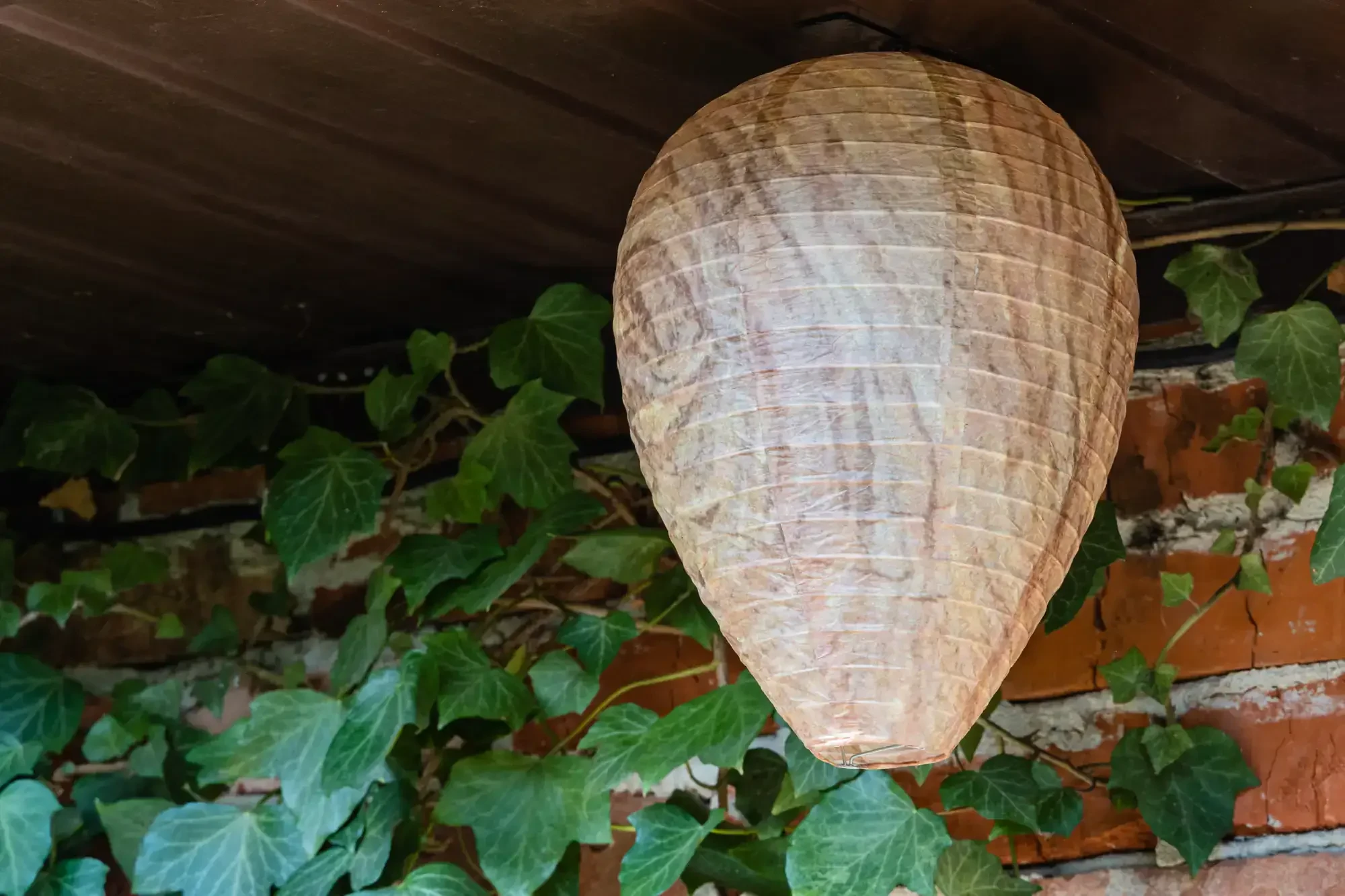
You’ll walk outside without scanning for wasps first. Your kids will play in the yard without you holding your breath every time they run near the deck or shed.
Those weekend barbecues won’t end with everyone rushing inside because aggressive yellowjackets decided to crash the party. You’ll actually use that patio furniture you bought instead of avoiding it because of the nest under the eaves.
The constant worry disappears. No more wondering if that buzzing sound means trouble, or if someone’s going to get stung just checking the mail. Your property becomes yours again, not shared with insects that can send people to the hospital.
We’ve been protecting Bancroft families since 2005. Roger brings 26 years of hands-on experience to every wasp removal job, understanding exactly how Michigan’s wasp species behave and where they build their most dangerous nests.
We’re not some national chain that rotates college students through your property. You get the same experienced technician year after year—someone who knows Bancroft’s unique pest challenges and takes pride in keeping your family safe from aggressive stinging insects.
Our integrated pest management training and awards from Angie’s List and Home Advisor aren’t just credentials. They represent our commitment to doing wasp removal right, using proven methods that eliminate the entire colony and prevent them from returning to the same location.
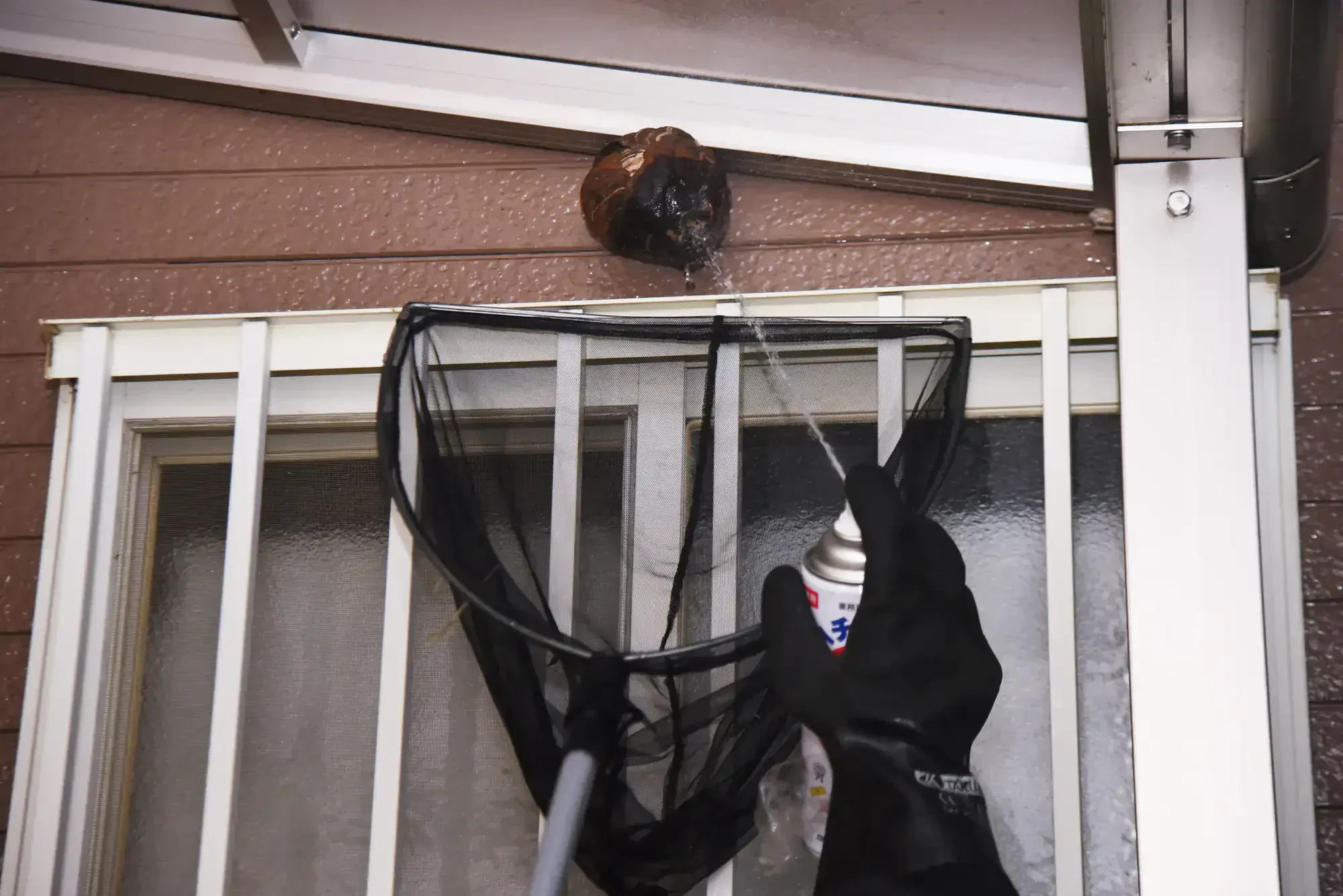
First, we locate every nest on your property, including the hidden ones in wall voids, underground, or high in trees that most homeowners miss. We identify the wasp species because yellowjackets, paper wasps, and hornets all require different elimination approaches.
Next, we apply targeted treatments directly to the nests using professional-grade products that eliminate the entire colony, not just the wasps you can see. We work during optimal times when wasps are less active, reducing the risk of aggressive swarms.
After elimination, we remove the physical nests and treat the areas with residual products that prevent new colonies from establishing in the same locations. We also seal entry points and eliminate conditions that attract wasps, giving you long-term protection instead of temporary fixes.
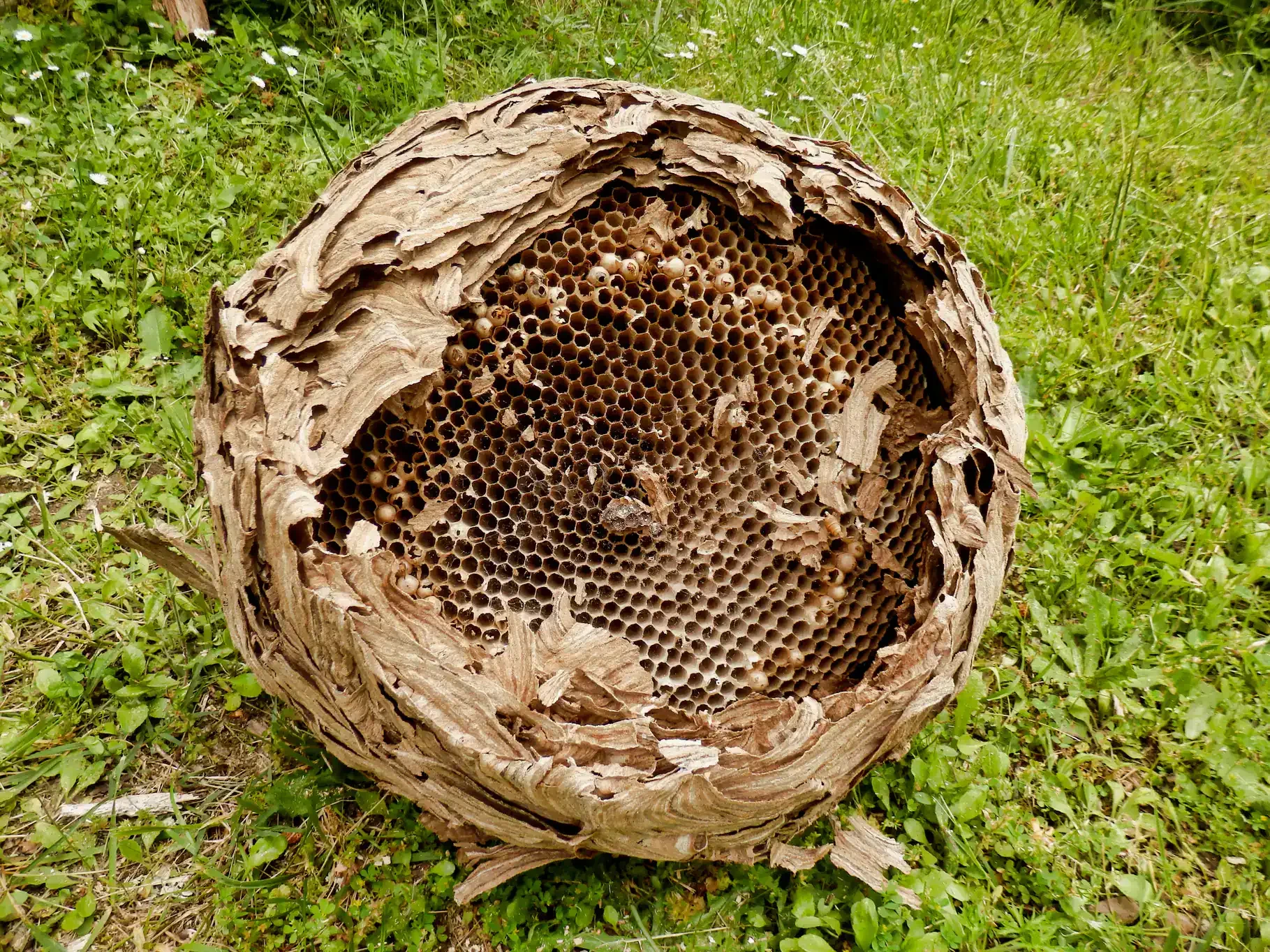
Ready to get started?
Your wasp nest removal service includes complete property inspection, identification of all active nests, and elimination of entire colonies using targeted treatments for each wasp species. We remove physical nests and apply residual treatments to prevent reestablishment.
Bancroft properties face specific challenges during Michigan’s peak wasp season from July through September. Late summer brings the most aggressive wasp behavior as colonies reach maximum size and food sources become scarce, making professional removal essential for safety.
We handle everything from paper wasp nests under deck railings to dangerous yellowjacket colonies in ground burrows and massive hornet nests in tree canopies. Emergency same-day service is available for situations involving immediate threats to family safety, especially when nests are discovered near children’s play areas or main entrances.
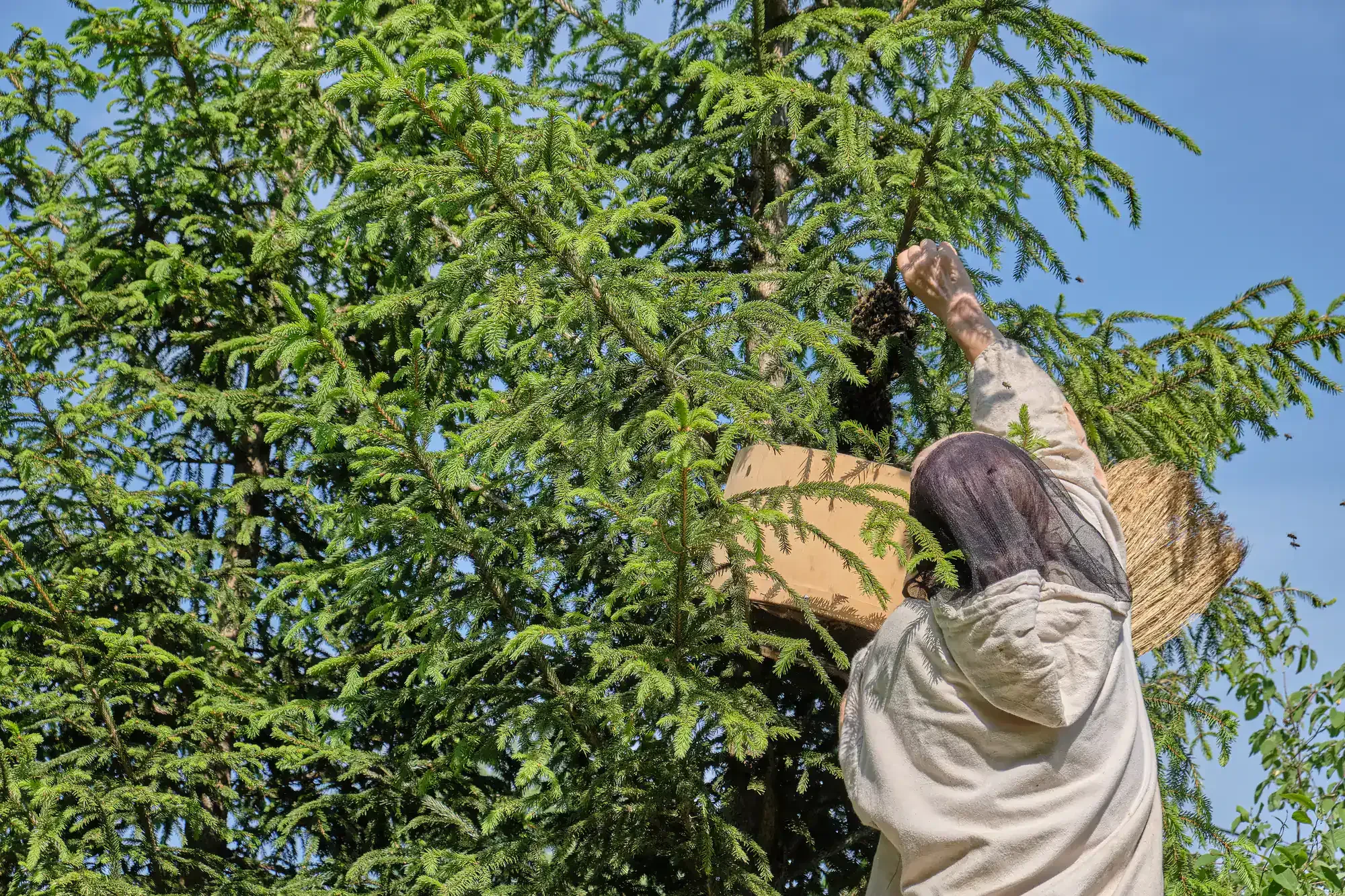
Wasp nest removal in Bancroft typically costs between $200-$600 depending on the nest location, size, and wasp species involved. Simple paper wasp nests on accessible structures cost less than dangerous yellowjacket colonies buried underground or massive hornet nests high in trees.
We provide upfront pricing with no hidden fees, and we offer price matching against reasonable competitor rates. We also provide discounts for seniors, veterans, and first responders as our way of giving back to the Bancroft community.
The investment in professional removal is worth it when you consider the medical costs of multiple stings, potential allergic reactions, and the peace of mind that comes with complete elimination rather than temporary DIY fixes that often make the problem worse.
Yellowjackets are the most aggressive wasps in Bancroft, especially the German yellowjackets that often nest inside buildings and the eastern yellowjackets that build underground colonies. These species will attack without provocation and can sting multiple times, making them extremely dangerous around homes.
Bald-faced hornets, despite their name, are a type of wasp and Michigan’s most aggressive stinging insect. They build large paper nests in trees and will aggressively defend their colonies, often swarming when threatened.
Paper wasps are generally less aggressive but still pose risks when their umbrella-shaped nests are disturbed. European paper wasps, an invasive species increasingly common in Michigan, are more defensive than native species and more likely to sting when their nests are approached.
Late summer through early fall is the most dangerous time for wasp encounters in Bancroft. By August and September, wasp colonies reach their maximum size with thousands of workers, and food sources become scarce, making them more aggressive and likely to sting.
During this period, wasps become scavengers, attracted to garbage cans, outdoor food, and sugary drinks. They’re also more defensive of their nests as they prepare for winter, when only the queens survive and the rest of the colony dies off.
Early intervention in spring when colonies are small is ideal, but late summer removals require extra caution and professional expertise. This is when most emergency calls occur, as wasps become bold enough to build nests near high-traffic areas like doorways, playgrounds, and outdoor dining spaces.
DIY wasp nest removal is extremely dangerous and often ineffective. Most homeowners underestimate the number of wasps in a colony and lack the protective equipment needed to avoid multiple stings. Disturbing a nest without proper technique often results in aggressive swarms that can chase people hundreds of feet.
Store-bought sprays typically don’t eliminate entire colonies, meaning wasps return to rebuild or relocate nearby. Worse, partially treated nests become more aggressive as surviving wasps defend their damaged home. Many DIY attempts end with emergency room visits from multiple stings or severe allergic reactions.
Professional removal ensures complete colony elimination using specialized equipment and techniques. We have the protective gear, professional-grade products, and experience to handle even the most dangerous nests safely. The cost of professional service is minimal compared to potential medical bills from stings or the expense of repeated DIY failures.
Most wasp nest removals in Bancroft are completed within a few hours of arrival. Simple nests in accessible locations can be eliminated and removed in under an hour, while complex situations involving multiple nests or difficult access may take several hours.
We offer same-day emergency service for dangerous situations, especially when nests pose immediate threats to family safety. If you discover a nest near children’s play areas, main entrances, or high-traffic areas, we prioritize these calls and can typically respond within hours.
Follow-up visits are rarely needed with professional removal, unlike DIY attempts that often require multiple treatments. Our targeted approach eliminates entire colonies in a single visit, and we guarantee our work with free return service if wasps reestablish in treated areas.
Wasps have strong site memory and often attempt to return to previous nesting locations, which is why complete professional removal is essential. Simply knocking down a nest or killing visible wasps doesn’t eliminate the pheromone trails that attract new colonies to the same spot.
Our removal process includes eliminating physical nests, neutralizing pheromone markers, and applying residual treatments that deter future nest building. We also identify and seal potential entry points and remove conditions that make locations attractive to wasps.
However, new wasp colonies can establish anywhere on your property during the next season. That’s why we recommend annual inspections and preventive treatments, especially for properties that have had wasp problems before. Early detection and treatment prevent small colonies from becoming dangerous large nests that threaten family safety.